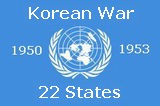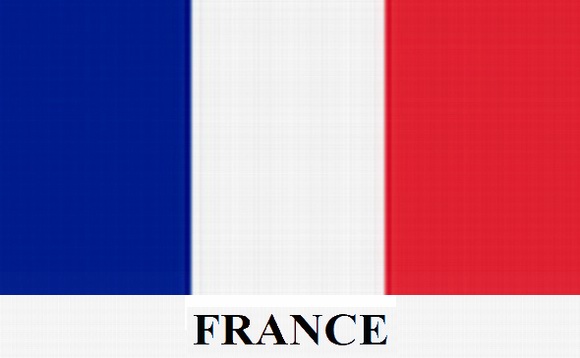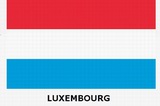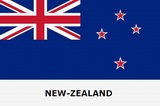French Draftees during the Algerian War
https://upload.wikimedia.org/wikipedia/commons/thumb/4/42/Appel%C3%A9.jpg/220px-Appel%C3%A9.jpg" width="32" height="32" />
From 1954 to 1962, a growing number of draftees were sent to Algeria to take part in the Algerian War, which began on November 1, 1954. Officially, for France, there was no question of talking about the war. Missions in Algeria were "law enforcement" or "pacification" operations to deal with "events".
The Algerian independence rebellion was almost assimilated to bandit activities. The rebels did not employ conventional methods of conventional warfare; but they used terrorism and guerrilla warfare against the civilian population. They carried out assassinations, farm attacks, arson, bombing in urban areas, etc ...) but also ambushes of French military patrols by commandos and later by companies or "katibas" of djounouds of the ALN. The enemy combatant was then informally referred to as the fellagha (or fell); an Arabic word that means outlaw. From 1961 a new rebellion appeared, this one was anti-independentist. These were named Delta commandos from the Organisation Army Secret (OAS). These commandos used the same means of violence as the FLN. The FLN and the legal power OF THE French Republic were designated as the enemy.
https://upload.wikimedia.org/wikipedia/commons/thumb/b/b6/Croix-valeur-militaire.jpg/100px-Croix-valeur-militaire.jpg" width="32" height="32" />
Draftees during the Algerian War
In France, including in the French departments of Algeria (Salan Amendment), in the year of their twentieth birthday, men were classified "good for national military service" by a board of medical commission, unless they were exempted. Some could ask for a reprieve: students, breadwinners ; others could choose to be drafted in advance. Since 1946, the legal duration of military service was 12 months. The law voted on 30 November, 1950 fixed the national military service at 18 months duration. Since that date, a three-day training camp in a barracks preceded the incorporation. In fact, it never lasted more than 24 hours. The abilities and sometimes the wishes of everyone were examined. Following tests and an interview, an individual file was established. Military service was compulsory, and conscientious objection was not recognized. Insubordinates could be sought and judged as deserters. This did not prevent the soldiers from refusing to express their disagreement with the Algerian war by refusing to bear arms. During the Algerian war, between 1954 and 1962, after the legal period of 18 months, some classes were recalled, others were kept in the ranks for a 30 month duration, and then reduced to 28 months. Recruitment in the army was also with volunteers. This did not imply an immediate and compulsory assignment for Algeria. Many were those who remained in France in the Centers of Instruction as permanent staff, or those who were assigned to the administrative tasks. For the draftees, only the paternity of at least two children, or the presence of a brother in Algeria, could constitute a reason for exemption for military service in Algeria. It should be noted that the fact of accepting to be a cadet (aspirant) at the end of the classes put an end to this dispensation. In addition, some armies such as navy or air force sent little manpower to Algeria, or for a shorter duration of 14 months instead of 24 for the army draftees. The draftees and reservists were distinguished from the volunteers who joined up to serve the country.
Basic training took place both in France and in Algeria
The draftees and volunteers were in basic training for two or four months, often in metropolitan France, sometimes in Algeria directly. The "boot camps" could be followed, for some, by a specialization (for example as radio telegraphist) or for an upper training in an officers school for reserve officers (E.O.R.) or for reserve non-commissioned officers (E.S.O.R.). The draftees concerned by these two formations were often students. The bulk of the troop went through a basic training for the use of weapons and law enforcement operations in Algeria. The enemy was designated as fellagha (bandit).
Departure to Algeria
Some draftees could hope to carry out their military service in Metropolitan France as it was necessary for the administration of the barracks. The others took the direction of Marseilles by train, then, after a short stay at the transit center of Sainte-Marthe in Marseilles, headed for Algiers or Oran: a crossing voyage of 19 to 24 hours, at the bottom of the holds, in one of the boats of the shipping companies (City of Oran, City of Algiers, etc.) and sometimes other old and often dilapidated boats (El Mansour, Sidi Ferruch).
In the departements of Algeria
The conscripts had a new kit of equipment before being assigned to a unit in Algeria. They received their military booklet and an individual dog tag for identification, to be cut according to the dotted line in case of death. This indicated that it was the war in Algeria. The newcomers were quickly rearmed by the platoon leaders who, if necessary, took them in ambush mission to awaken their fighting spirit in the field.
Equipment
The Algerian conscripts benefited from a generally more modern and more efficient weaponry than the fighters of the ALN and the FLN who were often armed with obsolete equipment or shotguns. The draftees were supplied with arms and materials by France (stock of the Indochina war, including the famous MAT-49) and NATO; the rebels recovered equipment from the so-called prisoners or dead and received clandestine ship deliveries, mainly from Nasser's Egypt or from the USSR via Czechoslovakia, or even from the United Kingdom via Gibraltar!Cargoes with tons of weapons were seized on board "Athos" and "Baltic Exporter".
Compilation and translation by Vincent FAUVELL-CHAMPION
Copyright © 2018 ANAAFF/ONU BC/RC 156ème RIRC - Tous droits réservés

















